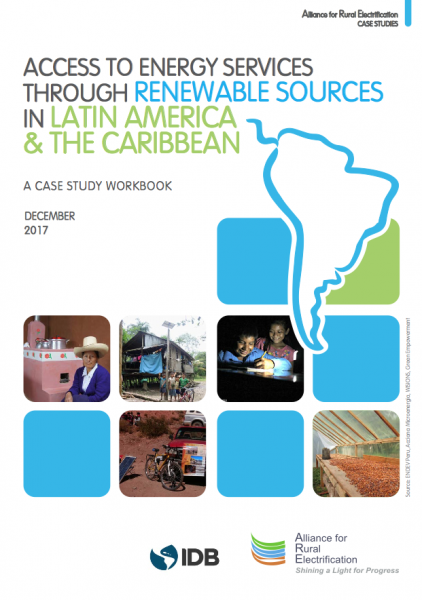In Trelew, Chubut, the students from the local Technical School have installed a new wind-solar hybrid system, capable of providing opportunity for energy self-sufficiency in the rural community.
3 SEPS Projects Featured in New ARE Publication
Statistics indicate that electricity coverage in Latin America and the Caribbean is at present about 97%. However, this still means that some 22 million people – about six million households – lack access to electricity. Overcoming this requires solutions based on an evaluation of a wide range of factors. These factors include appropriate technology, consideration of the environmental and social context, economic viability and cost-benefit analysis, and require the mutual collaboration of both the public and private sectors.
The new report prepared by ARE and commissioned by the Inter-American Development Bank (IDB) provides valuable reflections and lessons learned on clean energy access projects from the business association perspective. Part of the strategy to attain universal access across the region involves joining forces with other energy access initiatives and networks such as ARE.
The publication features three of WISIONS SEPS Energy Projects:
Improving Cacao Production and Processing While Meeting Cooking Fuel Demand in Ecuador (CRECER)
Solar Mobility in Andean highlands of Argentina
The publication is available for download on ARE’s website.


